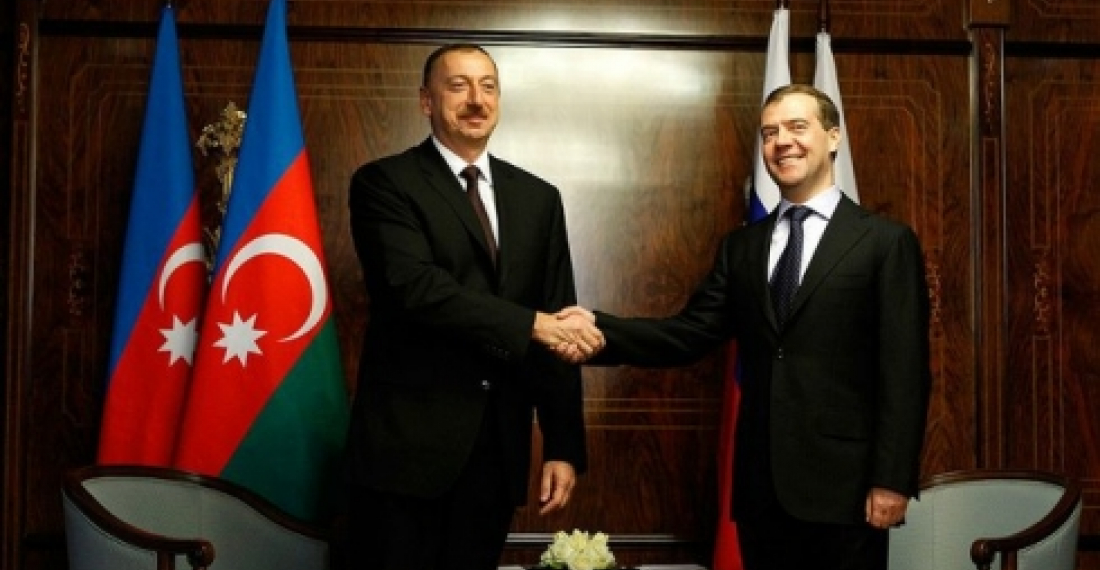- Armenia-Azerbaijan Strategic Expert Platform: Members emphasise the importance of the present moment for the South Caucasus and call for the momentum to be used for the long-term peace and prosperity of the region
- Thursday Interview: Dr. Anar Valiyev
- Food insecurity in Somalia has nearly doubled in the past year
- Türkiye evaluating potential measures in case of a US-Iran conflict
- European Parliament reaffirms support for Ukraine and EU Path
- EU moves ahead with Ukraine loan preparations despite Hungarian block
Medvedev and Aliev meet in Sochi. Medvedev said "Somewhere we have moved forward, somewhere, probably their still remain significant challenges."

The Russian president Dimitri Medvedev met President Ilham Aliev of Azerbaijan in Sochi on Monday ahead of the trilateral meeting with the President of Armenia.
In brief comments Medvedev referred to the previous meetings between the three presidents. "Somewhere we have moved forward, somewhere, probably their still remain significant challenges, but I believe that this dialogue is useful and I hope that such contacts will continue in the future."
The two Presidents discussed bilateral relations. Medvedev spoke of some "very serious results" in the economic and humanitarian co-operation between the two countries.
source: commonspace.eu with the Press service of the President of Russia
photo: President Medvedev with President Aliev of Azerbaijan at the start of their bilateral meeting in Sochi on 23 January 2012 (picture courtesy of the Press Service of the President of Russia).








